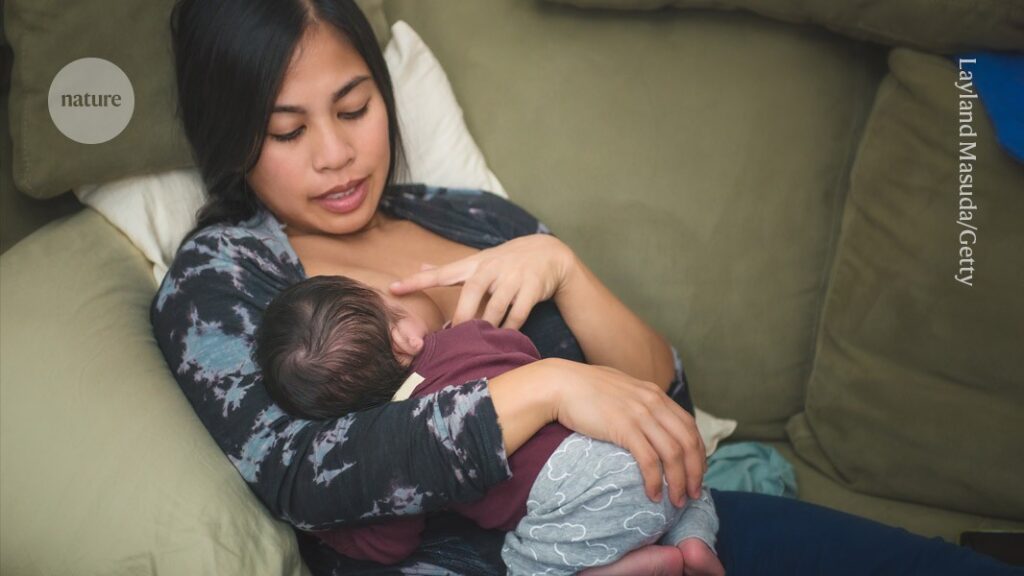Credit: Layland Masuda/Getty
Pregnancy and breastfeeding induces the accumulation of specialized immune cells that reduce the chances of breast cancer developing, finds a study1 in humans and mice that is published in Nature today.
Breastfeeding is known to reduce the risk of breast cancer, but the mechanism underlying this protection has been unclear. During pregnancy and postpartum, the human breast significantly remodels itself to create a supply of nutritious milk to help a baby’s organs, brain and bones to grow. After weaning, the breast goes through a process called involution, changing back. During this process, new cells are created and older, damaged cells are cleared out.
This biological redesign is also “a main trigger” for the recruitment of specialized immune cells to the breast, called CD8+ T cells, says study co-author Sherene Loi. Other immune challenges, including milk proteins, any foreign material coming from the baby, mastitis and viruses, also bring T cells to the breast tissue, says Loi, a medical oncologist at the Peter MacCallum Cancer Centre in Melbourne, Australia.
T-cell count
Loi and her colleagues’ research had three parts. First, they looked at a diverse population of 260 healthy women who had undergone preventative mastectomies or breast reductions — some of whom had a normal risk of breast cancer, others an elevated risk — and compared the T-cell count in the removed breast tissue of women with and without children. Women who had had children had more T cells and those cells were long-lived, persisting for up to 50 years after pregnancy.
Next, the authors used mouse models to determine whether pregnancy and breastfeeding protect against breast cancer. Mice that had never had pups, mice that had pups that were almost immediately removed, forcing weaning and mice that had gone through a full cycle of lactation and involution had cancer cells introduced into a mammary fat pad. Loi and colleagues found that the tumours were smaller in the mice that had lactated, and that these animals also had more T cells in the tumours, than the mice that had their pups removed, forcing weaning. “Immunity was both in the breast and systemic. So lactation does actually change the whole body’s immunity in these mice models,” says Loi.
Last, the team looked at a population of more than 1,000 women who had what is known as triple-negative breast cancer, which occurs most commonly in women under the age of 40 and is one of the most aggressive forms of the disease. All of the women had given birth. Those who had breastfed had better survival rates — and their tumours contained more T cells — than did those who hadn’t breastfed.
Julia Ransohoff, an oncologist who treats and researches breast cancer at Stanford University in California, says the study leverages a creative set of data from mice and humans to show that breastfeeding and involution result in CD8+ T-cell-driven antitumour immunity in breast tissue. The study also finds that these T cells are associated with triple-negative breast tumour regression. In people, some of these immune cells are retained for decades after a baby’s delivery, she adds.

